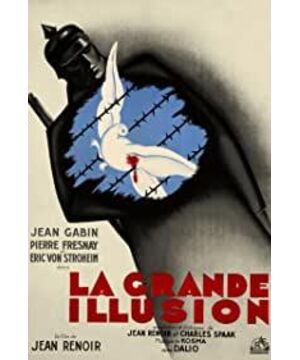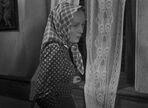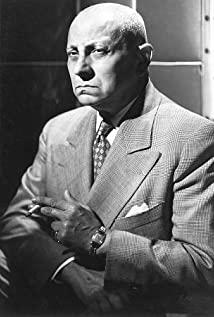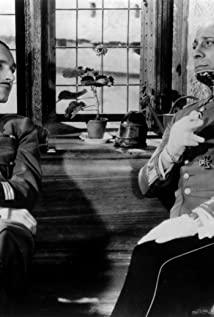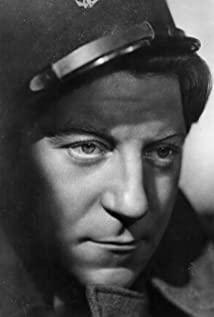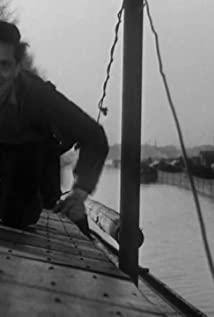The story of the prison escape from the prison camp is neither nervous nor humorous. It is a bit weird to describe it, and it looks like two to two. The big phantom, the little is fortunate.
Three prisoners of war and one warden.
Two commoners, two nobles.
The four different camps and classes intertwined different friendships and endings under the background of the war, which also made an excellent anti-war movie.
I'm used to watching all kinds of movies that are cruel and cruel after capturing prisoners of war. At first glance, I see that the German and French soldiers and prisoners of war get along with each other. I really feel a little uncomfortable. After I get used to it, I start to feel a little envious. Reasonable, non-enthusiastic communication between people starts from the first meal Rofenstein met Podio.
Speaking of this scene, the aristocratic way of dealing with people is all in one word and deed, and it is not deliberately revealed. What is impressive is that in addition to Rofenstein’s polite resignation and the short salute and silence of the soldiers when the enemy sacrificed the pilot’s wreath in the middle of the conversation, there is also Rofenstein’s unforgettable iconic forceful neck-back pose. Drinking action, of course, explained later, it was because of the injury to the spine on the battlefield.
The life in the first POW camp was actually a bit absurd. Prisoners from France received packages from their homes, ate meat and drank wine, squabbled in the room, and sometimes gathered around the window to look down at the young German soldiers. The guard soldiers are training hard outside.
It's a very strange situation. What should be bitter or not, happy or unhappy.
But those who eat meat and drink wine are still digging a hole to escape. In Podio’s words-prison is used to escape. It sounds no different from "soldiers who are going to charge and fight". It seems that there is a sense of transcendent honor that does not consider life and death at all, noble but not artificial.
The women's clothing show where the soldiers at the bottom sang and laughed was warm and not vulgar. In the end, the appearance of a piece of news became an exciting moment for the collective singing of the national anthem. But in the war years, the appearance of one piece of news was covered by another piece of news in an instant, and the excitement was no more than the time of a song.
Mike, who was locked up in the small black room, couldn't help being frantic. The prison guard who couldn't understand the language silently left a few cigarettes and a harmonica, lying on the door, listening to the sound of the harmonica, expressing relief. "What was he arguing just now?" "The war was too long." Such shots, such lines, with the sound of the harmonica, were too warm and unforgettable.
The dug hole was immediately ready to be used, and everyone was nervously hovering, and suddenly received a notice to collectively transfer to a new prisoner of war camp. The plan that has been so hard for so long has collapsed. What is surprising is that no one scolded my mother, but before leaving, he was still thinking about telling the guards-hey buddy, we dug a tunnel there~ This group of French guys are really interesting. .
In the new prison, Podio and Rofenstein met again. From rounds to private meetings, the frankness and sympathy between the same class is amazing. On the other hand, the class gap between Podio and Mike that they could not bridge even though they have been together for 18 months is equally frank.
In the end, Podio, with a typical aristocratic self-sacrificing chivalry spirit, covered the two non-aristocratic officers under him and successfully escaped from the castle-like concentration camp. In the farewell scene of Rofinstein in front of Podio’s bed, the dialogue is brief and powerful, and his spiritual pursuit seems to transcend the event itself. The final shot was frozen on the window sill where the two had opened their hearts and talked. The only flower was cut out and died with Podio, heavy and full of brilliance.
"It's a tragedy for ordinary people to die in war, but for you and me, this is a good way."
"I missed the opportunity."
After Podio's death, two low-level officers who complained to each other and supported each other to escape. In those moments, I really doubted that they would be captured in two minutes, and also questioned whether Podio’s sacrifice was worthy of their survival. Fortunately, the seeds of kindness are still there, and some are even too lucky. They are still on the way to escape. Rub the flames of love. Seeing the woman who needs to rely on telling her longing for the footsteps of a man, Shangguan Jieci's shadow and voice flashed in her mind, "Passerby, who can help me bury my father-in-law." The women in the war have long been lost. The right to choose is left with the extravagant desire for a little help and the dare not to extravagantly ask for it.
There are emotions at the bottom, and friendship at the top.
Prisoners of war have the perseverance of prisoners of war, and the warden has the principle of the warden.
I have to say that this kind of plot is also quite idealistic. The so-called Phantom, the happier thing is that Renoir gave the Phantom a happy ending -
"Don't shoot, they are in Sweden."
"Count them lucky. "
May the world be at peace
View more about La Grande Illusion reviews


